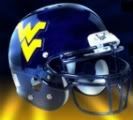Post by elp525 on Sept 28, 2011 4:58:37 GMT -5
September 27, 2011
Kicks, returns and coverages all on Holgorsen’s improvement list
By Dave Hickman
The Charleston Gazette
MORGANTOWN - There seems little question as West Virginia goes forward after Saturday's 47-21 loss to No. 1 LSU that the Mountaineers' most immediate area of concern is special teams.
Yes, turnovers were a big issue, both the four WVU committed and the zero it forced. That the Mountaineers now rank No. 100 out of 120 FBS schools in turnover margin continues to be a point of emphasis.
There are defensive issues, too. Forget extenuating circumstances (such as a kickoff return and awful field position), those 47 points were still more than any Mountaineer team had surrendered since 2002.
Still, what resonates most of all, even days after the game, was how poorly West Virginia's special teams played.
There, too, existed some extenuating circumstances, of course. The Mountaineers' poor play on special teams was accentuated because LSU handles that part of the game so well. One can't be separated from the other.
Still, it just served to illustrate how much work WVU has to do in that area.
"We're not going to hit panic mode,'' coach Dana Holgorsen said Tuesday. "LSU's been known for being as good a special-teams team as there has been in college football over the last decade. So part of the thing that was discouraging for everybody involved was the fact that they were far better than us in all four phases [punt, punt return, kickoff and kickoff return].
"They've set the bar and we've got to work hard to get it to the point where we're like they are.''
There is obviously a lot of work to be done, and it's not limited to any one of those four phases to which Holgorsen referred.
The punt team is dead last in the nation in net punting. That could be troublesome again this week because Bowling Green (3-1), while arriving for a 3:30 p.m. game on Saturday as a 21-point underdog, does have the advantage of having the best net punting average in the country.
WVU's punt returns were non-existent against LSU. Tavon Austin ranks fourth in the nation in punt returns (22 yards per return), but against the Tigers he fair caught two and let the other four be downed. The average field position for WVU after those six punts was its own 7-yard line.
West Virginia isn't giving up huge chunks of yardage on kickoff returns like it did a few years ago, but the ones they do surrender are game-changers. Morris Claiborne's 99-yard runback Saturday was what completely changed the game.
On kickoff returns, WVU ranks first in the Big East, but that's deceiving. Austin's 100-yard return in the opening game against Marshall skews the numbers. Subtract that one return and the Mountaineers would drop from No. 37 nationally to No. 101.
But again, Holgorsen's answer is not going to be to blow the whole thing up and start from scratch. In fact, he might not even make that many personnel changes.
"We're not going to make wholesale changes because the people that are on those units are the guys we've got,'' Holgorsen said. "We can't do anything else other than just coach them and get them better at what they're doing.
"Our schemes are fine. It doesn't have anything to do with our schemes. It has everything to do with trusting those people that are on those units. And that's one thing we don't do a very good job of right now is trusting the people that are on those units.''
That's not to say there won't be a few changes. In fact, Holgorsen said in the moments after the LSU game that he would look at options at punter. Corey Smith is averaging 40.5 yards per punt, which would lead the Big East if he had enough punts to qualify. But he also shanked two punts against LSU, and they weren't his first of the season.
The backup punter on the depth chart is Mike Molinari, who serves as the holder on placements. But as with any other decisions on personnel, Holgorsen delayed any decision.
"We'll know more here in a couple of days after we practice,'' Holgorsen said. "The only way of fixing that sort of thing is getting out there and working at it.''
One thing that won't change is who returns punts. Austin's 22-yard average speaks for itself and Holgorsen has no problem with the junior receiver's ability to catch the ball. He just feels that Austin was in a bad situation against an LSU team with a great punting unit.
"I think Tavon does a great job catching the ball,'' Holgorsen said. "But there's a lot of ground to cover. And as quick as Tavon is, that doesn't mean that he can go field every one of those.
"I thought their punter had as good a punting performance as I've seen in all my years of coaching as far as where he placed it.''
Holgorsen did say he would like to see the rest of his punt return team do a better job of holding up the downfield coverage, but when things do get crowded and the ball is difficult to judge or too far away, he has confidence in Austin to make the right decisions on how to handle it.
But the bottom line is that in every special-teams area, the Mountaineers just have to get better, like LSU.
"I think the people that were on LSU's punt team, mainly No. 7 [Tyrann Mathieu] and No. 17 [Claiborne, both starting cornerbacks], were pretty good players to the point where they got down the field and they made things happen.'' Holgorsen said. "We've got to look at that and we've got to say, 'You know what, where's our 7 and 17 at?' Maybe we've got to put some guys like that on there.''
Kicks, returns and coverages all on Holgorsen’s improvement list
By Dave Hickman
The Charleston Gazette
MORGANTOWN - There seems little question as West Virginia goes forward after Saturday's 47-21 loss to No. 1 LSU that the Mountaineers' most immediate area of concern is special teams.
Yes, turnovers were a big issue, both the four WVU committed and the zero it forced. That the Mountaineers now rank No. 100 out of 120 FBS schools in turnover margin continues to be a point of emphasis.
There are defensive issues, too. Forget extenuating circumstances (such as a kickoff return and awful field position), those 47 points were still more than any Mountaineer team had surrendered since 2002.
Still, what resonates most of all, even days after the game, was how poorly West Virginia's special teams played.
There, too, existed some extenuating circumstances, of course. The Mountaineers' poor play on special teams was accentuated because LSU handles that part of the game so well. One can't be separated from the other.
Still, it just served to illustrate how much work WVU has to do in that area.
"We're not going to hit panic mode,'' coach Dana Holgorsen said Tuesday. "LSU's been known for being as good a special-teams team as there has been in college football over the last decade. So part of the thing that was discouraging for everybody involved was the fact that they were far better than us in all four phases [punt, punt return, kickoff and kickoff return].
"They've set the bar and we've got to work hard to get it to the point where we're like they are.''
There is obviously a lot of work to be done, and it's not limited to any one of those four phases to which Holgorsen referred.
The punt team is dead last in the nation in net punting. That could be troublesome again this week because Bowling Green (3-1), while arriving for a 3:30 p.m. game on Saturday as a 21-point underdog, does have the advantage of having the best net punting average in the country.
WVU's punt returns were non-existent against LSU. Tavon Austin ranks fourth in the nation in punt returns (22 yards per return), but against the Tigers he fair caught two and let the other four be downed. The average field position for WVU after those six punts was its own 7-yard line.
West Virginia isn't giving up huge chunks of yardage on kickoff returns like it did a few years ago, but the ones they do surrender are game-changers. Morris Claiborne's 99-yard runback Saturday was what completely changed the game.
On kickoff returns, WVU ranks first in the Big East, but that's deceiving. Austin's 100-yard return in the opening game against Marshall skews the numbers. Subtract that one return and the Mountaineers would drop from No. 37 nationally to No. 101.
But again, Holgorsen's answer is not going to be to blow the whole thing up and start from scratch. In fact, he might not even make that many personnel changes.
"We're not going to make wholesale changes because the people that are on those units are the guys we've got,'' Holgorsen said. "We can't do anything else other than just coach them and get them better at what they're doing.
"Our schemes are fine. It doesn't have anything to do with our schemes. It has everything to do with trusting those people that are on those units. And that's one thing we don't do a very good job of right now is trusting the people that are on those units.''
That's not to say there won't be a few changes. In fact, Holgorsen said in the moments after the LSU game that he would look at options at punter. Corey Smith is averaging 40.5 yards per punt, which would lead the Big East if he had enough punts to qualify. But he also shanked two punts against LSU, and they weren't his first of the season.
The backup punter on the depth chart is Mike Molinari, who serves as the holder on placements. But as with any other decisions on personnel, Holgorsen delayed any decision.
"We'll know more here in a couple of days after we practice,'' Holgorsen said. "The only way of fixing that sort of thing is getting out there and working at it.''
One thing that won't change is who returns punts. Austin's 22-yard average speaks for itself and Holgorsen has no problem with the junior receiver's ability to catch the ball. He just feels that Austin was in a bad situation against an LSU team with a great punting unit.
"I think Tavon does a great job catching the ball,'' Holgorsen said. "But there's a lot of ground to cover. And as quick as Tavon is, that doesn't mean that he can go field every one of those.
"I thought their punter had as good a punting performance as I've seen in all my years of coaching as far as where he placed it.''
Holgorsen did say he would like to see the rest of his punt return team do a better job of holding up the downfield coverage, but when things do get crowded and the ball is difficult to judge or too far away, he has confidence in Austin to make the right decisions on how to handle it.
But the bottom line is that in every special-teams area, the Mountaineers just have to get better, like LSU.
"I think the people that were on LSU's punt team, mainly No. 7 [Tyrann Mathieu] and No. 17 [Claiborne, both starting cornerbacks], were pretty good players to the point where they got down the field and they made things happen.'' Holgorsen said. "We've got to look at that and we've got to say, 'You know what, where's our 7 and 17 at?' Maybe we've got to put some guys like that on there.''





